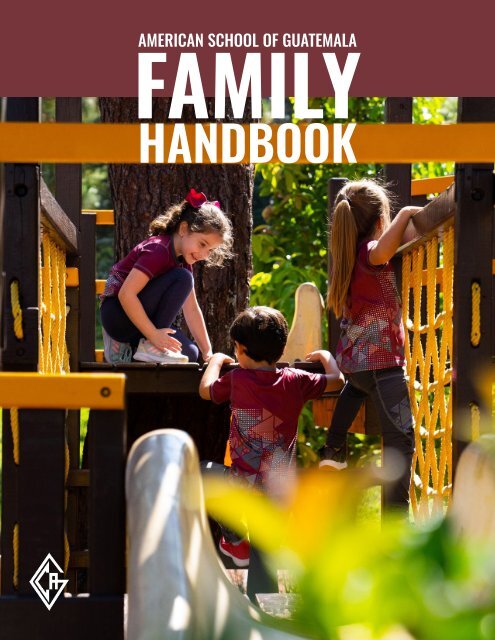Is a Family Emergency an Excused Absence from School? Unveiling the Truth

Yes, a family emergency is typically considered an excused absence from school. Schools recognize that students may face urgent situations requiring immediate attention.
A family emergency represents a significant, unexpected event that oftentimes necessitates a student’s absence from school. Most educational institutions have policies in place that categorize such emergencies, including a death in the family, a serious illness, or other critical circumstances, as valid reasons for excused absences.
The recognition of these incidents allows students to deal with personal matters without the added stress of academic penalties. School policies usually require students or guardians to notify the school and provide appropriate documentation to validate the emergency. Timely communication with the school is crucial to ensure that the student receives support and access to make-up work or extensions as needed for their return. Understanding and cooperation between families and educational institutions are vital in managing the academic impact of such unforeseen events.
Understanding Excused School Absences
When life throws a curveball, parents and students alike often wonder about the implications on school attendance. Life doesn’t pause for education, nor does education always take precedence over life’s unpredictable events. It’s crucial for families to understand how schools categorize absences, particularly when a situation qualifies as excused. This understanding not only eases anxiety but also ensures that students don’t fall behind due to unforeseen circumstances.
The concept of excused absences
The Concept Of Excused Absences
An excused absence is a recognized situation where a student is allowed to miss school without the risk of penalty or falling behind in their coursework. Schools often have policies listing scenarios deemed acceptable for excused absences. These policies seek a balance, recognizing students’ need for continuous learning and the reality of life’s challenges. Importantly, students are typically allowed to make up the work they’ve missed during these absences.
Common criteria for excusal
Common Criteria For Excusal
- Illness: Most schools consider illness with a doctor’s note, or in some cases, a parent’s note, as a valid reason for an absence.
- Family Emergencies: A critical situation involving a family member may qualify for an excused absence, given that the school is promptly informed.
- Medical Appointments: Healthcare-related appointments that cannot be scheduled outside school hours may also warrant an excused absence.
- Bereavement: The passing of a loved one is a recognized reason, allowing a student time to grieve and partake in family activities.
- Judicial Obligations: Court appearances or other legal mandates are typically respected by school authorities.
- Religious Observances: Many schools acknowledge the need for students to observe significant religious events or occasions.
- College Visits: High school students exploring post-secondary options may be granted excused absences for university tours or entrance exams.
To ensure an absence is properly documented and excused, it’s important for the responsible party to notify the school as soon as possible. Providing supporting documentation, such as a doctor’s note or court summons, may be necessary to verify the legitimacy of the absence.
Family Emergency Absence Policies
When the unexpected occurs, families often grapple with the decision to keep children out of school. In the realm of educational attendance policies, family emergency absences can be particularly poignant. Understanding school protocols for such events is crucial for parents and guardians. Schools typically have established guidelines to address these situations—the aim is to support students while maintaining the integrity of the educational process.
Standard Policies Across Schools
Most educational institutions have a set of standardized policies for excused absences, including what may constitute a family emergency. These policies usually outline the steps a parent or guardian must take to formally report the absence and any necessary documentation. While nuances exist, several common elements are present across various schools.
- Notification: Parents must inform the school of the absence, often within a specific timeframe.
- Documentation: Schools may require written explanation or official documentation to verify the emergency.
- Duration: There may be limits on the number of excused absence days allowed for a family emergency.
- Make-up Work: Policies generally include provisions for students to make up missed assignments and tests.
How Emergencies Are Qualified
A crucial aspect to note is how schools classify family emergencies. Although standards for qualification vary, they typically encompass scenarios that are sudden, serious, and require immediate attention.
| Type of Emergency | Examples |
|---|---|
| Medical Crisis | Hospitalization, Accident |
| Family Death | Passing of a Close Relative |
| Unexpected Events | Natural Disasters, Fires |
The determination of what qualifies as an emergency often rests with school officials. Parents can expect to engage in dialogue with school representatives to explain the circumstances and align on next steps. Prompt and clear communication can significantly ease the process for all parties involved.
Family Emergencies: Criteria For Excusal
When an unexpected crisis strikes at home, families often scramble to manage the situation, and a child’s attendance at school might become secondary. Most schools recognize that family emergencies occasionally necessitate a student’s absence and have procedures in place for these contingencies. Understanding the criteria for an excused absence can ease the stress during challenging times, and ensure that your child’s academic record remains intact.
Medical emergencies as a valid reason
Medical Emergencies As A Valid Reason
Health-related crises are generally regarded as legitimate grounds for a student’s absence. To qualify for an excused absence under a medical emergency, certain conditions usually need to be met:
- Immediate family member: The emergency must involve a member of the student’s immediate family.
- Documentation: Schools often require a doctor’s note or hospital records confirming the emergency.
- Notification: Parents or guardians should notify the school as soon as possible, typically within 24 hours of the emergency’s occurrence.
Each school may have specific guidelines, so it’s crucial to check your school’s handbook or website for the exact requirements.
Death in the family and school policies
Death In The Family And School Policies
The loss of a family member is an understandably traumatic event for a child, and schools offer bereavement leave as part of their excused absence policies. Key points to consider include:
- Immediate Family: Bereavement leave typically covers losses within the immediate family, though some schools may extend this to include other close relatives as well.
- Duration: The period of excused absence varies by the school district, but it’s usually a few days.
- Communication: Advise the school as soon as possible to arrange for your child’s absence and to ensure they receive support upon their return.
Securing support during such times is vital, so make sure to inquire about available counseling services or other resources that the school might provide.
Is A Family Emergency An Excused Absence?
Is a Family Emergency an Excused Absence?
When unexpected family emergencies arise, the ensuing chaos can disrupt all aspects of life, including a child’s attendance at school. Many parents find themselves grappling with the question: “Is a family emergency considered an excused absence from school?” The answer isn’t always black and white and can depend on various factors including the school’s policies and the nature of the emergency. Let’s delve into the nuances of how schools handle these sensitive situations.
Unveiling The Truth Behind School Protocols
Schools recognize that emergencies can occur without warning, deeply affecting students and their families. While schools expect regular attendance, they often have protocols in place to address absences due to family crises. These protocols aim to provide students the flexibility to deal with life’s unforeseen challenges without compromising their education.
Typically, schools categorize absences as excused for a variety of reasons, including:
- Medical reasons: Appointments and illnesses with a doctor’s note.
- Bereavement: Time off following the death of a family member.
- Legal obligations: Court appearances or legal procedures.
- Family emergencies: Situations that require the child’s presence.
Documentation, such as a note from a healthcare provider or legal authority, can assist in promptly excusing an absence. Parents should contact the school as soon as possible to inform them of the situation and to understand the required steps to ensure the absence is excused.
Case-by-case Consideration In Schools
Each family emergency is unique, and so is each school’s response. Schools often handle these situations on a case-by-case basis, taking into account the nature of the emergency, the student’s attendance record, and other relevant factors.
In determining whether an absence is excused, schools may consider:
- The immediacy and severity of the emergency.
- The student’s history of attendance and past excuses.
- Previous communication between the family and school regarding potential emergencies.
- Supporting evidence provided by the family.
Following up with the school plays a critical role in ensuring the absence is excused. Parents should provide clear communication and, where possible, evidence that substantiates the emergency. Effective dialogue between a family and school establishes a basis of trust and understanding, paving the way for support during such challenging times.
Schools may also offer support services such as counseling to help the student deal with the emotional impact of the emergency. It’s essential for families to inquire about and utilize these services if needed to help their child cope and return to their academic routine.
Documentation And School Requirements
When a family emergency arises, it invariably disrupts the usual routine. For school-going children, it can mean missing classes and possibly falling behind. Recognizing this, schools often have policies in place for excused absences due to emergencies. However, to maintain academic integrity and ensure valid reasons for absences, schools typically require documentation. Let’s delve into the types of documentation most schools may ask for and understand the importance of maintaining open lines of communication with school officials during such events.
Types of documentation schools may request
Types Of Documentation Schools May Request
Upon a student’s return to school following a family emergency, the following documentation may be necessary:
- Medical Certificates: In cases of medical emergencies, a note from a healthcare provider is often required.
- Obituaries or Funeral Notices: If the absence was due to a death in the family, related documentation is usually acceptable.
- Legal Documents: Court appearances or other legal obligations that involve the student may necessitate official paperwork.
- Letters from Family: While not always sufficient on their own, letters explaining the situation can be part of the documentation.
Schools may have specific forms for parents or guardians to fill out in addition to the above, detailing the nature of the emergency and the expected duration of the absence.
The role of communication with school officials
The Role Of Communication With School Officials
Clear communication with school officials is paramount when dealing with a family emergency. Starting the conversation early can help ease the process in several ways:
- It allows school officials to provide immediate support and potentially offer resources to the student and family.
- It sets the stage for understanding the school’s absence policy and what documentation will be required upon return.
- It helps in explaining the situation in detail, ensuring transparency and fostering a cooperative relationship.
- It gives time to coordinate the collection of assignments and a plan to catch up on missed work.
Staying proactive and reaching out as soon as possible minimizes academic impacts and keeps the school well-informed.
Planning For Unexpected Absences
Planning for unexpected absences can often leave parents feeling anxious, but understanding that schools typically view a family emergency as an excused absence is crucial. Whether it’s a sudden illness or a critical situation that requires immediate attention, knowing the protocols for informing your child’s school and preparing for potential emergencies ahead of time can lessen stress and ensure that your child’s education remains a top priority.
How To Inform The School Of An Emergency
Contacting your child’s school promptly during a family emergency will not only excuse the absence but also allow the school to provide any possible support. Follow these steps:
- Call the main office – Contact the school as soon as possible. Schools typically have a dedicated line for reporting absences.
- Provide detailed information – Explain the nature of the emergency, without sharing overly personal details, to provide context for the absence.
- Discuss makeup work – Inquire about assignments or classwork your child might miss so that they can catch up later.
- Ask about school policy – Confirm the duration for which an emergency absence can be excused and what documentation might be required upon return.
Preparing In Advance For Potential Emergencies
Anticipating an emergency might seem daunting, but a little preparation can make a significant difference. Consider the following tips:
- Keep school contact information handy – Save numbers in your phone and keep a physical copy in a visible, easily accessible place at home.
- Maintain an ’emergency folder’ – This should contain medical records, a list of medications, and other crucial documents you might need to share with the school.
- Establish a support network – Identify relatives or friends who can step in to help with school communications or student pickups if you are unable to do so.
- Create academic contingency plans – Have a discussion with your child about maintaining focus on schoolwork if you’re dealing with a family crisis.
- Know your child’s daily schedule – This involves being aware of their classes, extracurricular activities, and transportation details to coordinate in case of last-minute changes.
Although no one hopes to face emergencies, preparation is key to managing the unforeseen. By establishing a solid pre-emptive plan and understanding how to effectively communicate with your child’s school, you can minimize the disruption to your child’s education during times of turmoil.
Frequently Asked Questions For Is A Family Emergency An Excused Absence From School
What Qualifies As A Family Emergency?
A family emergency is an unexpected event that requires immediate attention and typically involves a family member’s health or safety. This could include accidents, serious illnesses, or death in the family.
How Do Schools Handle Emergency Absences?
Schools usually consider emergencies as excused absences with proper notification. Parents should inform the school promptly and provide any required documentation, such as a doctor’s note or obituary, to validate the emergency.
Can You Get Excused For A Family Emergency?
Yes, most schools will excuse a student’s absence for a family emergency. It’s essential to communicate with the school as soon as possible and follow any procedures they have for such situations.
What Documentation Is Required For Emergency Absence?
Documentation requirements can vary, but may include medical records, death certificates, or a letter explaining the emergency. Check with your specific school for their particular requirements.
Conclusion
Navigating school policies during a family crisis can be challenging. Schools generally recognize the importance of family and offer leeway for emergencies. It’s essential to communicate with educators swiftly and provide necessary documentation. This understanding between schools and families ensures that a student’s education continues without undue penalty during difficult times.
Always check specific district policies to be prepared.

With over 20 years of experience in early childhood education, Jane brings a wealth of knowledge to Classroom Journey. She specializes in play-based learning and has a passion for inclusive education.






